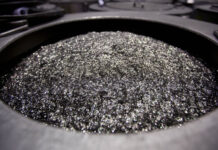
[miningmx.com] – GLENCORE, the R587bn mining and commodities trading group, may cut capital expenditure by up to $2bn in order to provide sufficient cover for its dividend, said Macquarie Research in a report dated January 28.
The bank said that while Glencore’s BBB credit rating was not immediately in danger, the decline in spot prices for certain commodities meant free cash flow would fall short of covering Glencore’s projected dividend of approximately $2.4bn.
“Under various spot price assumptions, Glencore would need to cut between $1bn to $2bn of capex to cover the dividend and eliminate concerns on credit metrics,” said Jeff Largey, an analyst for Macquarie Research.
“Of course this assumes commodity prices, in particular copper, do not take another leg down,” he said in the report.
“We don’t comment on broker notes,” said Charles Watenphul, spokesman for the Swiss-headquartered group. “What I would say is that our capex/opex is under constant review,” he added.
JP Morgan said last week that Glencore may cut the dividend, but it would also have to focus on its capex bill, or even asset sales, in order to maintain its credit rating.
The bank’s comments refer to the reliance of Glencore’s trading division – which is forecast to provide 45% of group profit this year – on gross debt of $15bn. A reduction in the credit weighting would therefore increase the cost of that debt.
On January 21, Standard and Poor’s (S&P) made significant downward revisions from 2015 to 2017, with iron and copper heavily affected.
Said Macquarie Research: “Glencore would comfortably meet its forward looking BBB credit rating thresholds under S&P’s revised commodity price forecasts.
However, S&P’s commodity price forecasts for copper, nickel, zinc and aluminium are generally more bullish than spot over the 2015-2016 time frame”.
“While Glencore could escape negative revisions by S&P simply because S&P’s commodity price deck is higher than spot and/or because S&P tends to be backwards looking, we believe Glencore will take assertive steps to restore investor confidence in the balance sheet,” it said.
On January 28, Glencore said it would shut the export section of its Optimum coal mine in South Africa’s Mpumalanga province owing to the “financial hardship” suffered at the operation amid a poorly performing thermal coal price.
It declined to comment on the prospect of making other cuts to South African coal production. “We review all operations, and not just in coal,” said Watenphul.










